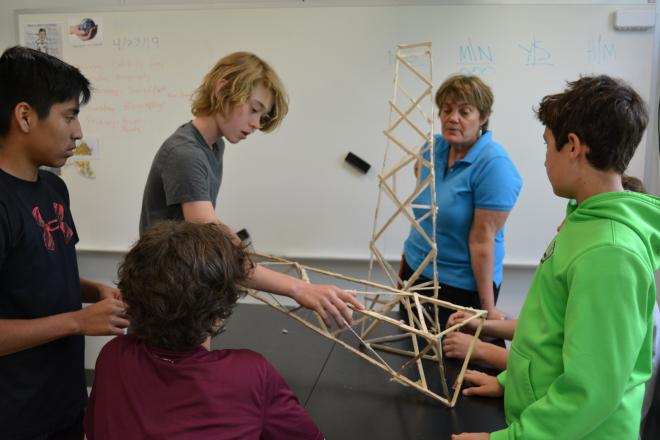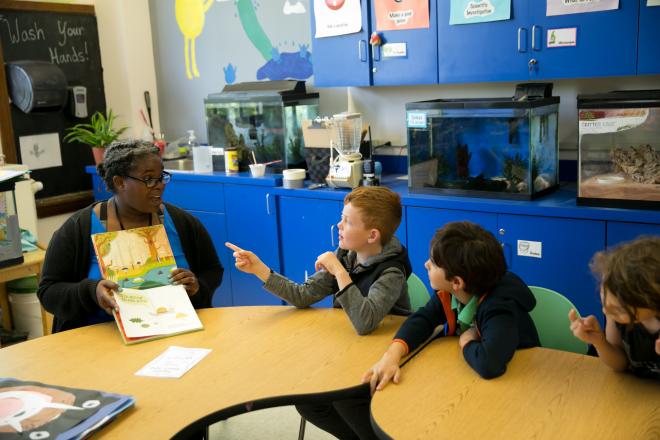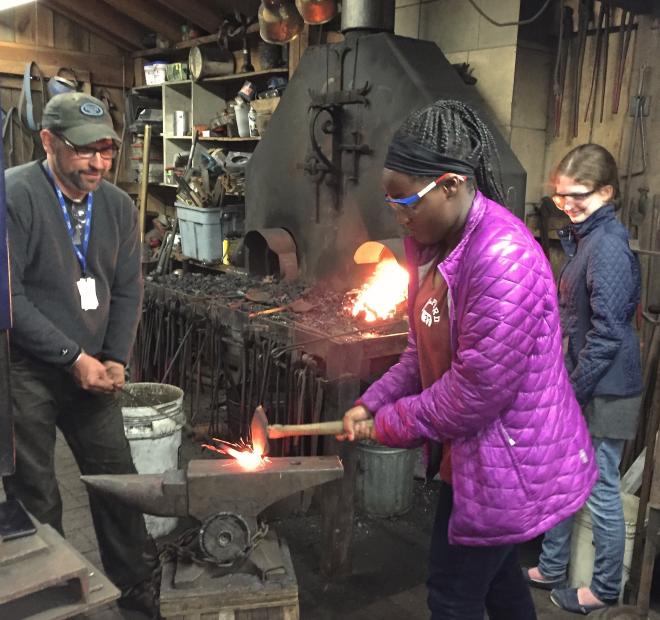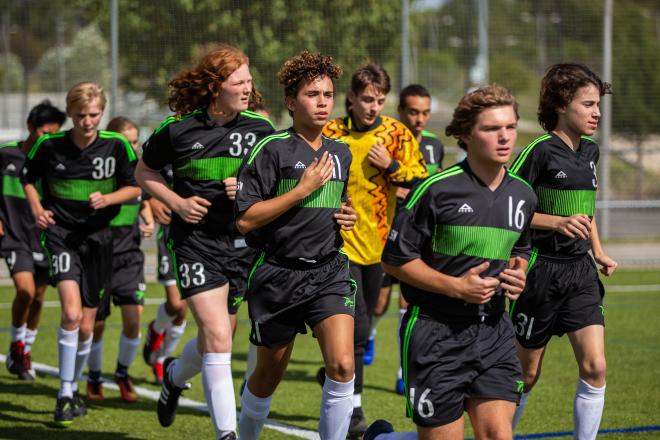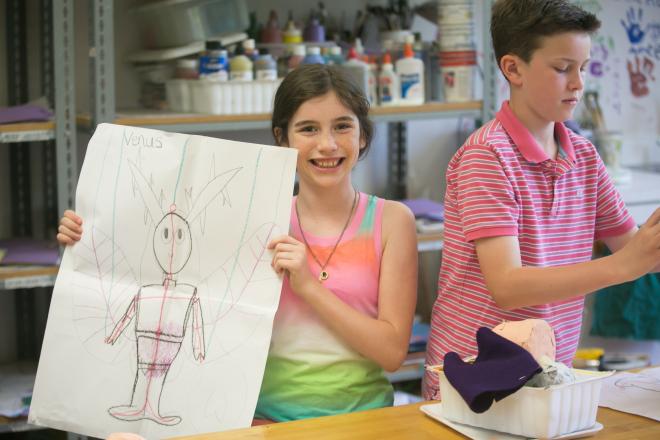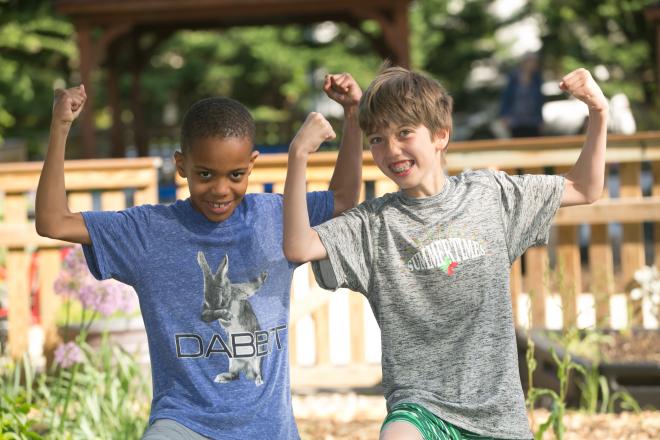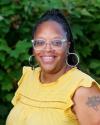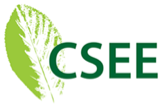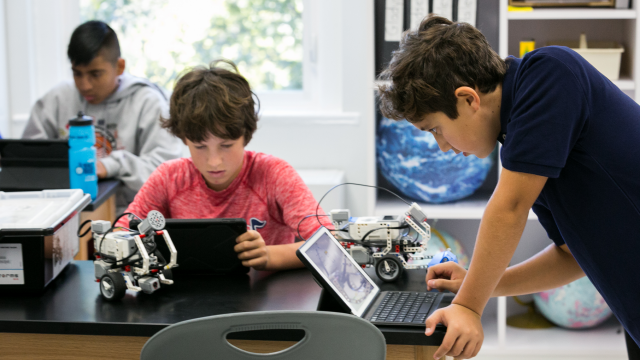
Academic Experience
Learning differences didn’t stop some of the world’s brightest visionaries from discovering, creating, and inventing. Think Gavin Newsome, Albert Einstein, Bessie Coleman... Today’s students — our future leaders and innovators — are unstoppable when they learn how they learn best.
The Nile River runs through a classroom designed to replicate ancient civilizations, and lanterns dot the stone walls of another made to resemble a medieval castle. Guided by a museum director, a group of curators examine artifacts and determine if they should preserve, restore, or replicate these treasures. Imaginative and immersive role-playing, a hallmark of Lab’s Lower and Middle School divisions, builds character, empathy, and the ability to see multiple perspectives. These are just some of the many examples of the multi-sensory, cross-curricular, project-based learning you’ll find throughout our halls.
Lab students receive personal attention and individualized instruction from teachers and professional artists who understand learning differences. Small class sizes allow students to get to know one another through teamwork and collaboration.
The Power of Arts-Centered Education: The Science of Art
Our progressive teaching model puts the arts front and center for a reason. The visual and performing arts are fun, engaging, and can serve as an outlet for self-expression. But it’s more than that: art education trains the brain. Through art, students engage in brainstorming, organizing, designing, sequencing, and critiquing. They make connections between seemingly unrelated subjects, and they make sense of the human experience.
Through art, they can improve academic performance, build confidence, and prepare them for college or the workforce by mastering skills and form habits of mind such as:
- Critical thinking
- Decision-making
- Organized thinking
- Sequencing
- Memory
- Focus
- Mindfulness
- Empathy
Through the arts, students become deeply involved and invested in their learning.
That’s why no matter what level or what type of class from literature and social studies to math and science — our teachers bring lessons to life.
Lower Through Upper School
We welcome students at any point in their educational journey. The Lab School’s three divisions provide robust and enriching educational programs to students with learning differences. Lab students have the opportunity to progress at their own pace.
Beyond the Classroom, and Beyond Washington
Experiential learning opportunities prepares students to be culturally competent citizens. Lab students travel, serve, intern, perform, build, and research. Learning happens outside Lab, whether it’s a lesson about sustainability in the wetlands in our front yard or across the Pacific exploring ancient temples in Japan.
Our Core Learning Tenets
At The Lab School of Washington, we’re guided by these five core ideals:
The Lab School was founded to create a safe and nurturing place to teach children with language-based learning differences in ways that work most effectively for how they learn and how their brains are wired, not on what how tradition tells us. Lab’s program is guided by principles put forth by John Dewey, who promoted a progressive education based on authentic learning experiences that engage the natural curiosity of children.
At Lab, the arts are not electives. Lab recognizes that an education based in the arts is often the pathway to deeper learning for — and growing confidence of — students who are inefficient learners in the print world. Students become analytical thinkers who approach problems and tackle projects from all directions. They use their own unique view of the world to arrive at unique solutions.
Lab understands that the social and emotional well-being of our students is vital to their ability and desire to learn. We don’t use the word “disability.” Our kids aren’t broken; they do not need to be fixed. They have different brains, and they learn differently from students for whom mainstream education is designed.
By mastering technologies like voice to text or coding in robotics, our students learn to articulate their strengths and challenges and become experts at identifying what works best for them. Multi-sensory, interactive experiences help students develop conceptual understanding and increase their engagement with whatever material is before them — now and as they head to college and into the workforce.
Our faculty members are experts in the field of learning differences education, and they teach our students how their individual brain works and how they learn best, now and going forward. More than 80 percent of our teachers hold advanced degrees, many in special education. Lab also provides occupational therapy, speech-language, and psychological services for our students in individual and small group sessions, as well as within their classrooms. By offering these supports, our students get the help they need, when they need it.
